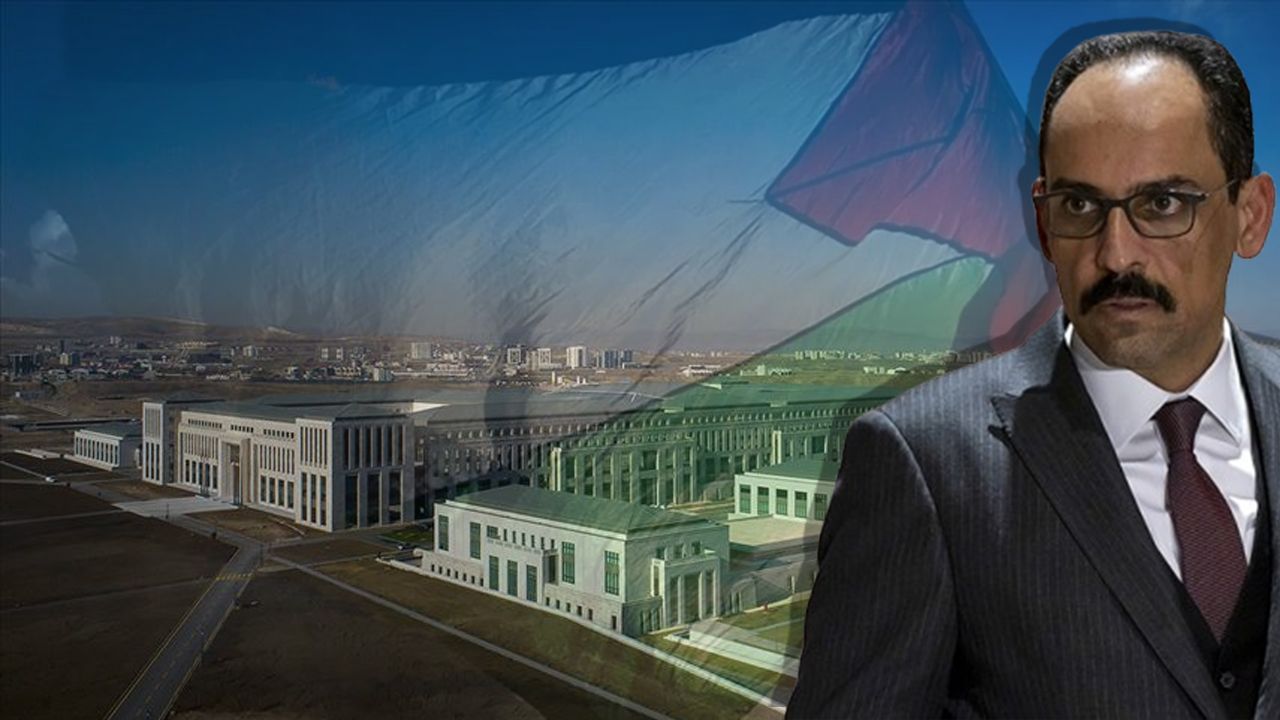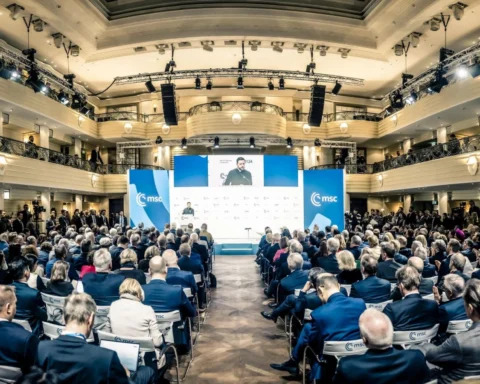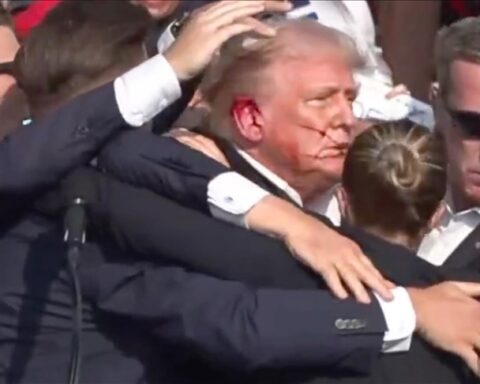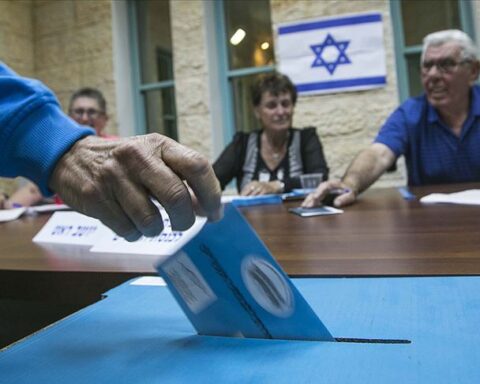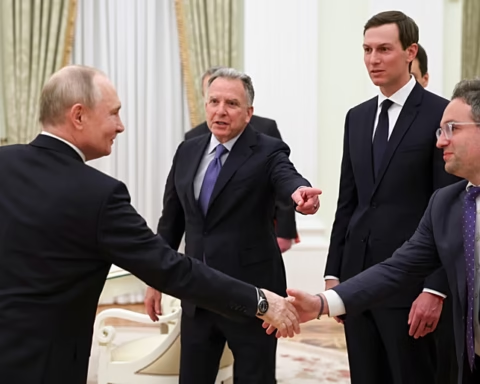When Trump and Netanyahu held a press conference in the United States and announced Gaza’s death sentence, it devastated everyone’s morale.
Then came Netanyahu’s revolting videos, released as if he had claimed some sort of “victory”—videos that enraged anyone with a conscience.
That wasn’t all. Trump also threatened, saying, “If Hamas does not sign the agreement, we will make them live in hell.”
When all this happened, a wave of anger, sorrow, and rebellion rose in the hearts of everyone who burned with love for Palestine.
A climate of despair prevailed, and many of us couldn’t sleep at night.
Critical Meeting in Qatar
Under the pressure of a harsh ultimatum—“either disappear or sign this agreement”—officials from Turkey, Egypt, and Qatar convened in Qatar as Hamas was being cornered.
Türkiye’s Intelligence Chief İbrahim Kalın, the Egyptian Intelligence Chief, and Qatari officials met with Hamas members under tight security measures.
While Hamas held talks with other resistance groups in Gaza, discussions at the table focused on how to escape this stranglehold, how to break this diplomatic siege, and how to gain at least a moment to breathe.
Hamas’ Resistance, the Mind of States Came Together
Hamas displayed remarkable resistance in the face of a blockade and pressure it had perhaps encountered many times before. However, after two years of fighting against the world’s largest armies, its strength was depleted. The experience of Hamas, which was resisting in spirit but exhausted physically, combined with the diplomatic skills of other states, and a way out was found.
Trump’s offer would not be rejected outright, but it would not be fully accepted either. Israel’s attempt to besiege, isolate, and demonize Hamas on the world stage would be thwarted. Thus, Gaza would be pulled out of hell, allowed to breathe, gain room to maneuver, and gather strength for the next step. That was the plan.
Change of Heart on the Hostages
At the table, the following was said to Hamas: Israeli hostages were once a protective shield, a bargaining chip that strengthened their hand at the negotiating table, and an advantage that placed Israel in a difficult position—but the situation is no longer the same. Despite the presence of hostages, Israel continued its bombardments, massacres, and ultimately, its ground invasion. In fact, Netanyahu had written off the hostages from the very beginning and had long been using them as a justification for the occupation.
Hostages were also present in all of Trump’s rhetoric, and this was the rationale for aiding Israel. Similarly, the hostage issue was always front and center in the statements of European states.
So what would Hamas lose by releasing the hostages?
This question was raised at the table, and the idea emerged that the hostages were no longer an advantage or a protective shield; on the contrary, they had turned into a liability.
If the hostages were released, part of what Trump wanted would be fulfilled, Israel’s trump card would be taken away, and the justification for the invasion would disappear. In this way, Hamas would break out of the “terrorist organization” siege by not being the party to reject the agreement. However, a masterstroke was played behind the scenes: no “yes” was given to Trump’s other demands, and it was stated that those would have to be negotiated in the future.
Critical Negotiations
Once the main points were determined, a text was prepared—crafted with state wisdom and carefully chosen words. Even Trump’s ego was taken into account in this document. After the text was finalized, a flurry of phone calls began between the foreign ministers of the involved states. Türkiye’s Foreign Minister Hakan Fidan worked intensively on the matter.
Then, National Intelligence Organization (MİT) Chief İbrahim Kalın called Trump’s Special Representative Witkoff and shared the prepared text. The two agreed that Hamas’s response was a very important step that could be taken to end the war. The next challenge was convincing Trump—by bypassing the Israeli lobby and Israel’s sympathizers in the White House, State Department, and Department of Defense.
First, Qatari Emir Sheikh Tamim Bin Hamad Al Thani held a phone call with Trump. He explained that they supported the outcome reached and that this was the most reasonable way forward.
The next day, President Erdoğan of Türkiye spoke with Trump by phone and stated that the conclusion reached by the delegation in Qatar was the most reasonable exit strategy.
Trump saw resolving the hostage issue upfront as a major achievement and accepted the offer.
The Effort to Influence Trump
Hamas publicly announced the carefully prepared text. The statement, which everyone read in astonishment, was immediately met with widespread acceptance.
Netanyahu assumed that Trump would not accept the text and expressed this to those around him. However, Trump shocked Netanyahu by posting a swift statement on his social media account: “Hamas is ready for permanent peace, the hostages will be released. Israel must stop the bombing immediately.”
The White House announced that Trump would make a video statement and released a photo taken during the video shoot.
However, the video was not released for quite some time. This was because Special Representative Witkoff and son-in-law Kushner had entered Trump’s room, and Netanyahu had insisted on speaking with him by phone.
Once this became known, rumors began to spread that Trump would reverse his decision.
Yet, largely due to Witkoff’s persuasion, Trump did not change his position and released a short video in which he said he found Hamas’s offer to be positive.
Thus, Hamas broke the siege, Gaza could finally breathe, and Israel suddenly found itself in a negative position.
Hamas Is Now a Legitimate Partner
Trump and Vice President Vance shocked Israel and its servants in the U.S. by publishing the full text of Hamas’s statement on their personal social media accounts. After all, they had acknowledged and accepted the proposal of an organization they had labeled a terrorist group—one that Israel had demonized and sought to destroy.
This amounted to a diplomatic “own goal” for Israel.
Moreover, by immediately calling on Israel to stop the bombardment, Trump had forced Netanyahu to back down. Although Netanyahu was still continuing the bombardment at the time of this writing (Saturday, 12:00 p.m.), their official statement declared that they would remain committed to Trump’s plan. However, this time, there was no triumphant rhetoric.
Why Did Trump Agree?
The Israeli press reacted by claiming, “Trump sold out Israel to win the Nobel Peace Prize.” They shared photos comparing Trump to a Hamas militant.
In fact, Trump got what he wanted, while Netanyahu’s plan to destroy Hamas was not fully implemented. But what mattered to Trump was the release of the hostages—and he saw this as an opportunity to turn it into a major success story. Meanwhile, with the Sumud Fleet, an unprecedented wave of protests was rising around the world, devastating the image of the United States.
Qatar, Türkiye, Saudi Arabia, Egypt, and Jordan all stood behind Hamas’s statement and demonstrated resolve.
All of this showed that the situation was unsustainable and that the people’s resistance would ripple outward and affect everything. U.S. strategists saw Hamas’s statement accepting the agreement as an opportunity to shift the situation, and Trump immediately acted on it.
Of course, he also had the upcoming Nobel Peace Prize nominations, set to begin on October 10, in the back of his mind.
Now, he’s eagerly awaiting which countries will nominate him.
Neither Victory nor Defeat
Despite receiving not even a crust of bread—let alone weapons—from the 57 Islamic countries or the 200 nations around the world, Gaza still carried out one of the greatest acts of resistance in history. The conditions it faced in defending its homeland and fighting for independence forced it to pause, gather strength, and gain time for new moves. With this wisely made decision, it instantly shifted its image on the world stage to a positive one and seized psychological advantage.
This situation is neither a victory nor a defeat. A new phase has begun in the resistance that has lasted for more than a century. New steps will now be taken in the process, and they will continue to resist—without losing land or compromising their honor.
Palestine is now a freedom struggle that belongs to the world. Victory will belong to those who believe.

